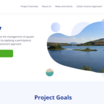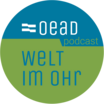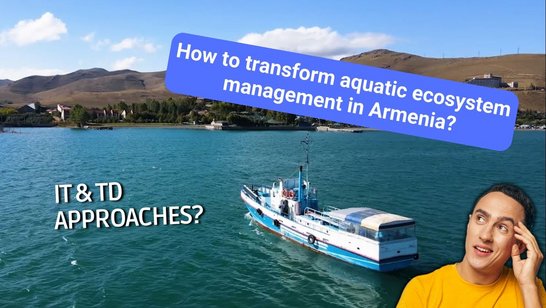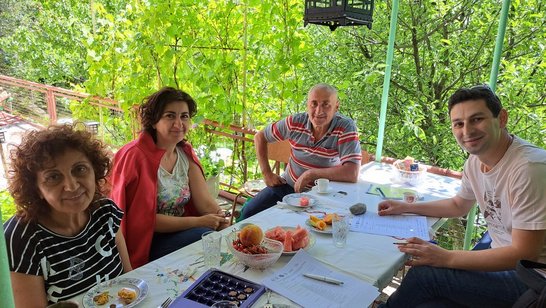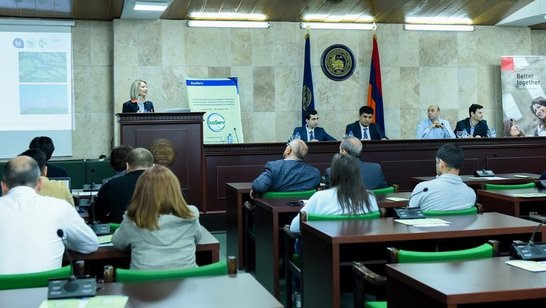Ecosystem services assessment through a participatory approach for sustainable water resources management in Armenia | EcoServ
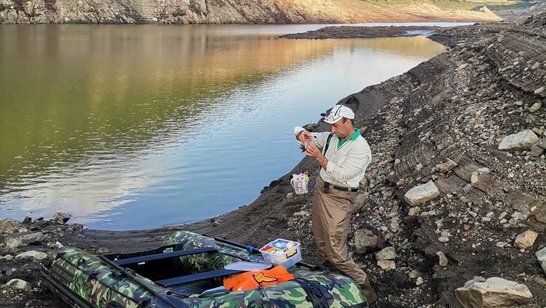
Project coordinator: Dipl.-Ing. Dr. Verena Radinger-Peer
Coordinating institution: University of Natural Resources and Life Sciences, Vienna (BOKU)
Partner institutions: Yerevan State University (YSU); Scientific Center of Zoology and Hydroecology (SCZHE) of National Academy of Sciences of the Republic of Armenia
Partner country: Armenia
Project duration: 1 March 2023 – 28 February 2027
Budget: EUR 519.939,78
Project Overview
Armenian aquatic ecosystems have a high level of vulnerability, in part due to high density of population in the drainage basins, lack of water treatment plants and global climate change. The World Resources Institute classified Armenia in the group of countries experiencing high baseline water stress. This has a major impact on local agricultural communities as sustainable yields are highly dependent on irrigation. Moreover, physical scarcity of water threatens energy security as the role of hydropower increases in Armenia. Along with the aridity, the pressure on the tributaries of the biggest freshwater reservoir in the Caucasus - Lake Sevan - also rises and some of the rivers dry up during the irrigation season. All these trends affect the livelihoods of local communities and the sustainability of the environment. Furthermore, a lack of legislation and education in the management of Ecosystem Services (ES) in Armenia poses more challenges for both the decision makers and local stakeholders.
The EcoServ project aims to:
- develop the capacities of YSU and the SCZHE for the assessment of ES;
- develop an ES management module for BA and MS degree students at the department of Management and Business of YSU;
- develop an ES service framework for Armenian wetlands that will be provided to local communities, the Ministry of Environment and the Ministry of Territorial Administration and Infrastructure of Armenia.
The EcoServ project is based on participatory approaches which are rooted in transdisciplinary and citizen science approaches, that is, the various beneficiaries are continuously involved in the elaboration of the knowledge needs (demand orientation), system analysis, knowledge provision and co-production of potential future development trajectories.
Beneficiaries of the EcoServ project are on the institutional and local levels: researchers, teachers, students, members of the local community in the case study regions, as well as stakeholders affected from the mentioned developments such as farmers, industry, tourism, NGOs. A particular focus is on women and the support of sustainable female business and foundations. Furthermore, at the regional or national level the ministries can benefit from the EcoServ project by integrating the findings and frameworks into national development strategies. Through numerous capacity building activities, the various beneficiaries will improve their skills, knowledge and expertise as well as their capacity to act, which is seen as a valuable impact of EcoServ beyond the project duration.
EcoServ contributes to the APPEAR programme’s thematic focus “Protection of the environment and sustainable management of natural resources – mitigating climate change and its impacts, protection of ecosystems, responsible use of natural resources, sustainable energy, water and sanitation”. However, the EcoServ project also targets other thematic areas of the APPEAR programme such as education for all, gender equality, empowerment of women and girls, governance, as well as sustainable economic development. Furthermore, EcoServ strongly contributes to SDG 4 Quality education, SDG 6 Clean water and sanitation as well as SDG 15 Life on Land.
Reporting
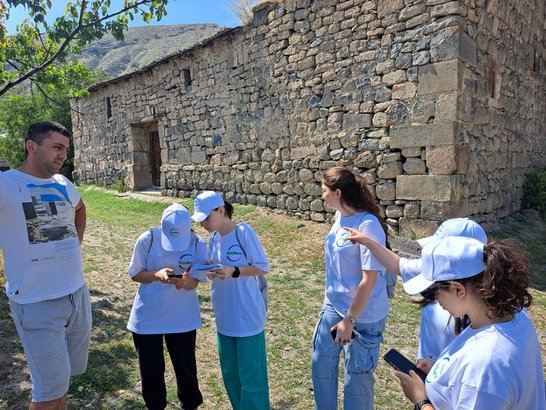
EcoServ | Report on the 2nd project year | (March 2024 - February 2025)
The EcoServ project has launched its citizen science activities, marking a major milestone in its mission to promote sustainable aquatic ecosystem management in Armenia. Focused on fostering local engagement and environmental awareness, the initiative brings together scientists, educators, students, and communities to co-create knowledge and build long-term resilience in the Hrazdan River basin.
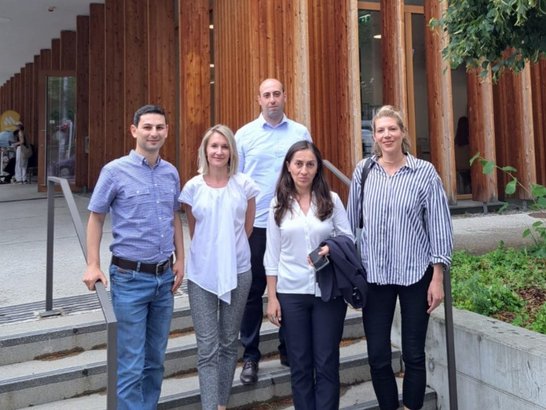
EcoServ | Report on the 1st project year | (March 2023 - February 2024)
The EcoServ project in Armenia has significantly advanced ecosystem services through various initiatives. These include the enhancement of equipment and facilities at Yerevan State University (YSU) for better research capabilities. Field studies focused on the Hrazdan River Basin have provided critical data for sustainable management practices. Educational modules integrated into Armenian universities aim to educate and inspire future environmental leaders.
Stakeholder engagement has been pivotal, facilitated through social media campaigns and workshops. This approach has not only promoted awareness but also encouraged participation from diverse groups, emphasizing gender equality and fostering sustainable entrepreneurship.
A significant event was the attendance of project team member Tigran Keryan at the 5th European Citizen Science Association (ECSA) conference in Vienna (ecsa24), held from April 3rd to April 6th, 2024, hosted by BOKU University and the Museum of Natural History Vienna.

